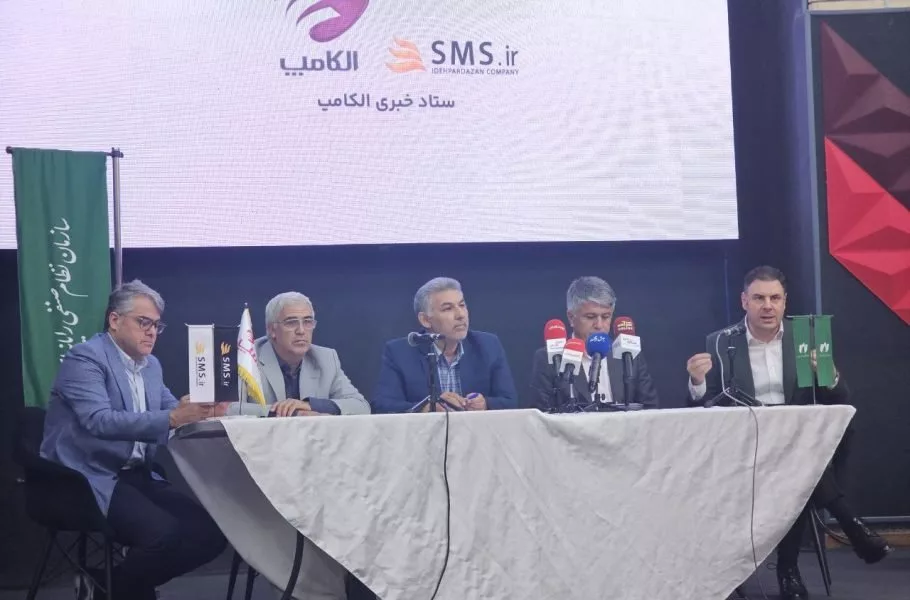
Internet Operators: Telecom’s Copper Wire Network Removal Plan Will Lead to Monopoly
Internet operators criticize Iran Telecom's copper-to-fiber plan, citing monopoly risks and VDSL technology deprivation.
Internet service providers have raised concerns that the Iranian telecommunications company's plan to dismantle its copper wire network could create a monopolistic environment. They warn that such a move would severely limit competition in the sector.
According to Digiato, the CEOs of various internet service companies gathered on the fourth day of Elecomp 2025 to discuss the potential consequences of Iran Telecom's decision to replace the copper wire network with fiber-optics.
Mohammad Hassan Shanehsazadeh, Chairman of the Board at Shatel, criticized the decision, calling it monopolistic. He stated, "Iran Telecom suddenly announced that it will no longer provide copper wire services to operators. This move is nothing short of monopolistic." Shanehsazadeh further added, "Additionally, Iran Telecom has quadrupled its prices compared to last year and has warned that if operators refuse to comply, their services will be terminated. This action deprives the country of VDSL technology."
Mohammad Ali Yousefizadeh, CEO of Asiatech, also criticized the irregularities and inconsistencies in the government's treatment of internet companies. He urged the government to resolve the uncertainties facing the sector. "We all operate under the same license, under the same ministry, and regulatory authority. We have aligned our efforts and invested in meeting the country’s fiber optic needs. Now, we face the challenge of Iran Telecom, which initially resisted entering this domain, but has belatedly decided to venture into it to sustain its market presence," he remarked.
Yousefizadeh also addressed critics of internet tariff reforms, saying, "Those who oppose tariff adjustments on social media are undermining network development and structural improvements. People must adopt a fair and responsible approach to using these services and pay appropriate fees." He further criticized Iran Telecom, stating, "We have commitments to our customers that Iran Telecom must acknowledge. If these obligations remain unresolved, we will face significant issues. Even if the regulator takes all these commitments from us, it would be better than the current uncertainty. In that case, investors would shift their focus to other industries."
Yousefizadeh also criticized the Regulatory and Communications Organization, claiming, "Over the years, we’ve seen significant fluctuations in the regulator's decisions, which instills fear in us. Current regulations conflict with previous ones, and impartiality is lacking. The regulator holds shares in Iran Telecom."
Responding to the criticisms, Hassan Karimi, Deputy Network Director at Iran Telecom, defended the company’s actions, stating, "The Swap project aims to replace copper technology with fiber optics. This requires substantial investment, roughly $4.5 to $5 billion, which we can manage by leveraging the copper assets underground. We plan to extract the copper and use the proceeds to purchase new equipment." Karimi further explained, "Iran Telecom and seven other companies operate under identical licenses, and the Regulatory and Communications Organization has not given preferential terms to any entity. Under these circumstances, what should we do? Divide the copper among companies?"
Karimi emphasized that most private companies in the sector operate with personal investments and assured that Iran Telecom has no intention of eliminating these businesses. "We must collaborate to ensure the growth of all companies. We've even provided agreements to some companies to participate in this large-scale investment," he noted.
Karimi concluded by highlighting the need for technological advancement, stating, "The copper network belongs to the people, and we represent them as a publicly-held company tasked with safeguarding their assets. Should I continue providing services on copper for another hundred years? No, that would lead to bankruptcy. Technological upgrades are a necessity."












